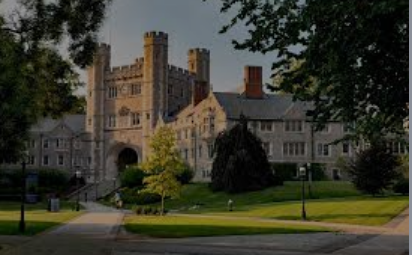Princeton University announced on Thursday it is expanding financial assistance to undergraduate students whose household income is less than $100,000. They will not have to pay anything to attend the university.

In the announcement, Princeton University said:
“Most families whose annual income is less than $100,000 will pay nothing for tuition, room and board, up from the previous $65,000 annual income level. Roughly 1,500 Princeton undergraduates are expected to receive this level of aid — more than 25% of the undergraduate student body.”
This shift in financial assistance and policy was made to attract students from all backgrounds, including Native American students who are not able to afford the cost to attend Princeton University.
“One of Princeton’s defining values is our commitment to ensure that talented students from all backgrounds can not only afford a Princeton education but can flourish on our campus and in the world beyond it. These improvements to our aid packages, made possible by the sustained generosity of our alumni and friends, will enhance the experiences of students during their time at Princeton and their choices and impact after they graduate,” Princeton University President Christopher L. Eisgruber said.
Full details are here. President Eisgruber gives an overview of the changes in this video.
More Stories Like This
Native Americans Could Be Hit Hard as Education Department Resumes Student Loan Wage GarnishmentHanging a Red Dress for Christmas: MMIP, Native Higher Education, and Hope for a Better New Year
Native Students Can Win $5,000 Scholarship, International Distribution in Pendleton Design Contest
American Indian College Fund Raises Alarm Over Plan to Shift Native Programs Away From the Dept. of Education
MacKenzie Scott Foundation Gives $5 Million Contribution to Little Priest Tribal College
Help us defend tribal sovereignty.
At Native News Online, our mission is rooted in telling the stories that strengthen sovereignty and uplift Indigenous voices — not just at year’s end, but every single day.
Because of your generosity last year, we were able to keep our reporters on the ground in tribal communities, at national gatherings and in the halls of Congress — covering the issues that matter most to Indian Country: sovereignty, culture, education, health and economic opportunity.
That support sustained us through a tough year in 2025. Now, as we look to the year ahead, we need your help right now to ensure warrior journalism remains strong — reporting that defends tribal sovereignty, amplifies Native truth, and holds power accountable.
 The stakes couldn't be higher. Your support keeps Native voices heard, Native stories told and Native sovereignty defended.
The stakes couldn't be higher. Your support keeps Native voices heard, Native stories told and Native sovereignty defended.
Stand with Warrior Journalism today.
Levi Rickert (Potawatomi), Editor & Publisher


